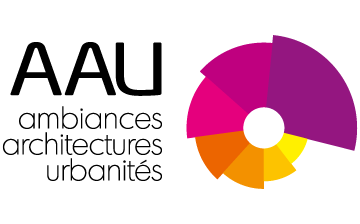Pédagogie de la sobriété lumineuse : étude des enjeux et méthodes de la requalification du parc d’éclairage public de la métropole nantaise au travers de la récolte d’indicateurs qualitatifs et quantitatifs des ambiances nocturnes en ville.
Pedagogy of light sobriety: study of the stakes and methods to requalify the public lighting park of Nantes through the collection of qualitative and quantitative indicators on the nocturnal ambiances in the city.
Nicolas Houel - Thèse de doctorat soutenue en 2020
Encadrement : Laurent Lescop Directeur de thèse
Financement : Convention CIFRE avec Nantes Métropole
FR
Dans le cadre d’un financement CIFRE accompagnant la définition du Schéma de Cohérence d’Aménagement Lumière (SCAL) de la Métropole de Nantes, la thèse de Nicolas Houel contribue à identifier les enjeux de la sobriété énergétique et lumineuse dans la gestion du parc d’éclairage public. La recherche porte sur la méthodologie d’élaboration du SCAL et se focalise sur l’identification des controverses actuelles dans la pratique de l’éclairage artificiel, en vue d’une sensibilisation et d’une implication de l’usager de l’espace public dans l’évaluation et la production des ambiances urbaines nocturnes. Le travail comprend une série d’enquêtes de terrain dédiées à l’évaluation et à l’itération d’une méthode de récolte d’indicateurs sensibles. En plus de sa partie analytique, la recherche propose un outil cartographique numérique inédit pour l’aide au suivi des installations et permettant en temps réel la collecte d’indicateurs physiques et sensibles directement identifiés par l’usager. La posture de recherche aborde la notion d’expertise d’usage, potentiellement complémentaire des expertises politiques, artistiques et techniques qui gouvernent actuellement l’éclairage public. Ils soulignent la place prépondérante de l’éclairage artificiel dans la culture collective et la très faible représentativité de la notion d’obscurité.
La pédagogie de la sobriété lumineuse, en réponse à l’enjeu de sobriété énergétique et lumineuse initialement poursuivi au travers de la démarche de sensibilisation des usagers à l’éclairage public, s’oriente finalement vers celui d’une forme de pédagogie à l’obscurité, dans laquelle la sobriété lumineuse pourra durablement s’installer.
http://webtv.univ-nantes.fr/fiche/19771/ma-these-en-180-secondes-nicolas-houel
EN
As part of a CIFRE contract associated with the definition of the Lighting Development Coherence Scheme (SCAL) of the city of Nantes, Nicolas Houel’s thesis contributes to identifying the stakes of better energy and light sobriety in the management of its public lighting park. The research deals with the development methodology of the SCAL and focuses on the identification of current controversies in the artificial lighting practice, to raise awareness and involve the users of public spaces in the evaluation and production of nocturnal urban ambiances. It includes a series of field surveys dedicated to the evaluation and iteration of a method for the collection of sensitive indicators. Beyond its analytical part, the thesis proposes an unprecedented digital mapping tool to monitor the installations and to in real time the collection of physical and sensitive indicators identified by the users. The research addresses the concept of expertise of use, potentially complementary of political, artistic and technical ones that currently govern public lighting. They highlight the prominent place of artificial lighting in collective culture and the very low representativity of the concept of darkness.
The pedagogy of light sobriety, regarding the challenge of energy and light sobriety originally pursued through an approach of awareness to public lighting for users, is ultimately oriented towards a form of pedagogy of darkness, in which light sobriety could settle lastingly.
